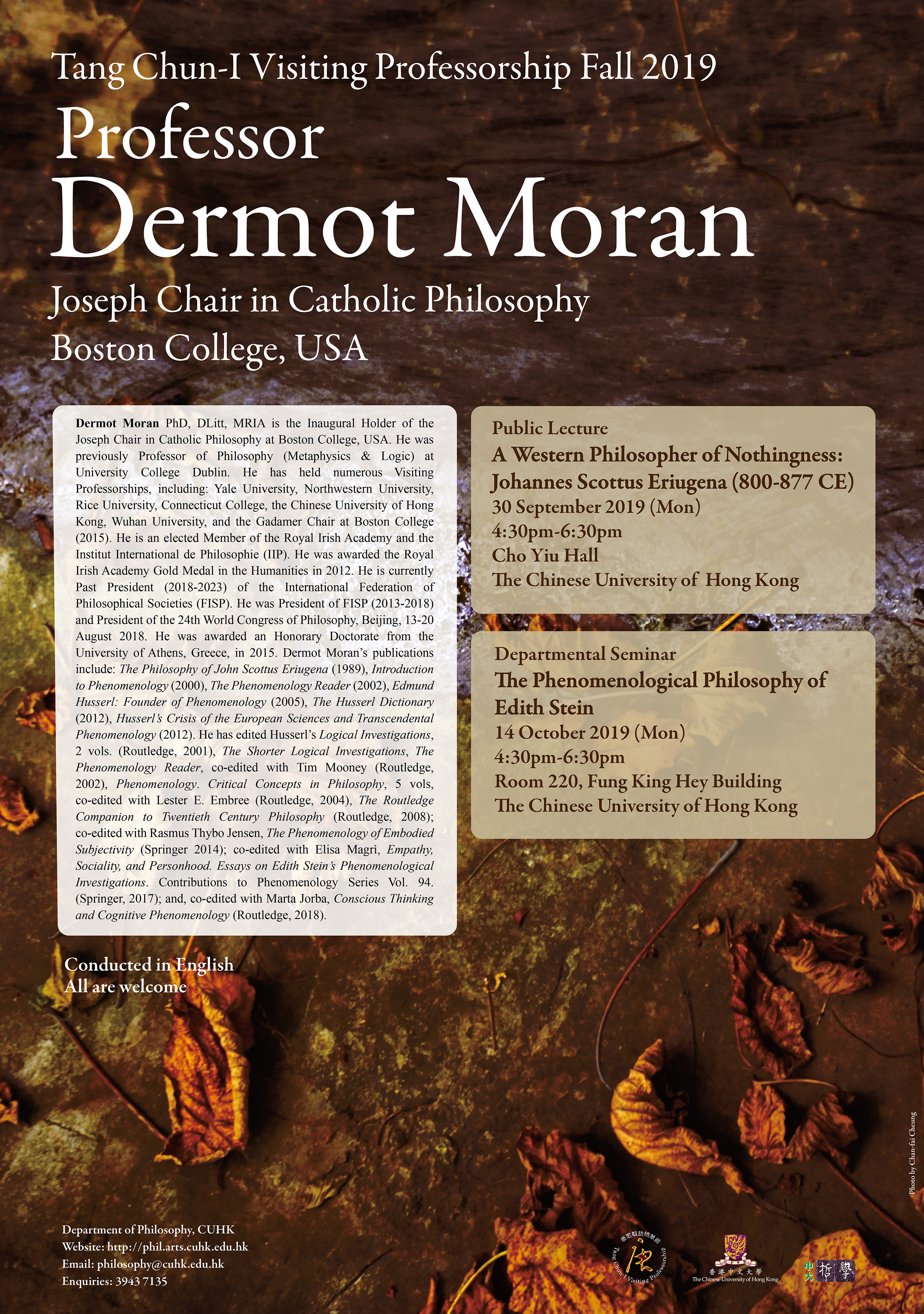Tang Chun-I Visiting Professorship Public Lecture: A Western Philosopher of Nothingness: Johannes Scottus Eriugena (800-877 CE)

Professor Dermot Moran |
|
4:30 – 6:30 pm |
|
Cho Yiu Hall, The Chinese University of Hong Kong |
Abstract:
The Irish-born, early medieval, Christian Neoplatonist philosopher Johannes Scottus Eriugena (c. 800 – 877 CE) offers the most elaborate and radical discussion of the meaning of ‘nothingness’ (nihil, non esse) in Western Philosophy. There are many themes that are original with Eriugena, including his well-known four divisions of nature (that has no exact counterpart in other ancient or medieval authorities), his concept of God’s own self-creation in his movement from darkness to light, his concept of divine self-ignorance, his conception of the creation of the world as divine self-manifestation, and his account of the purely spiritual nature of human beings. But his most radical claim is the statement in his dialogue, Periphyseon or On the Divisions of Nature, that God can be called ‘non-being’ (non esse) or ‘nothingness’ (nihilum). In this talk I shall examine Eriugena’s account of the ‘five modes’ (quinque modi) of being and non-being as outlined in his Periphyseon, especially in Book One, and to which he returns in Book Three, and I shall evaluate the current research concerning its sources and its originality. Eriugena’s immediate Latin sources have been suggested as Augustine, Marius Victorinus, and Fredigusius, but he was also deeply influenced by passages in the Greek Christian Fathers, especially Gregory of Nyssa, Dionysius the Areopagite, and Maximus Confessor, particularly on God as “non-being” or nothingness (nihilum). I shall examine the relevant texts and evaluate Eriugena’s original contribution in the Periphyseon with some reference to the treatment of nothingness in Buddhist thought.
Readings:
Sheldon-Williams, I.-P. and O’Meara, J.J., (tr.) (1987). Eriugena. Periphyseon (The Division of Nature). Montreal/Paris: Bellarmin.
Moran, Dermot. (1989). The Philosophy of John Scottus Eriugena. A Study of Idealism in the Middle Ages, Cambridge: Cambridge University Press.
Delivered in English
All are welcome




